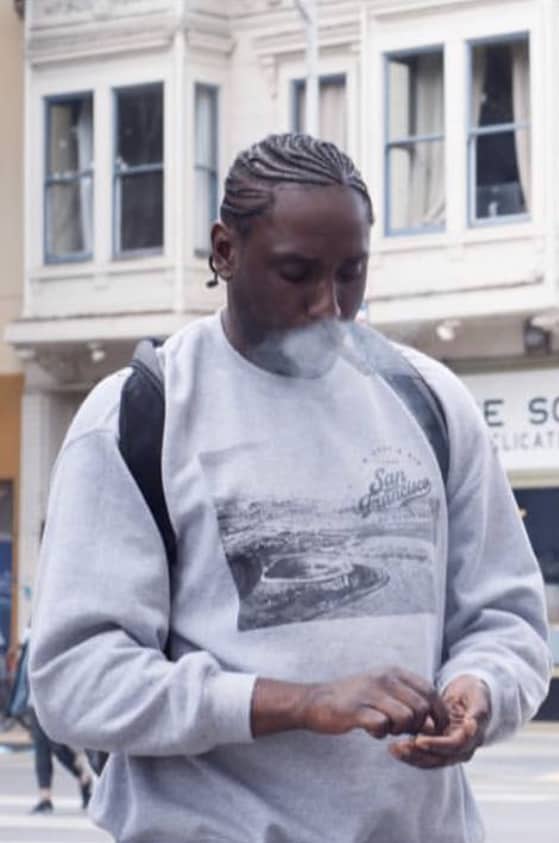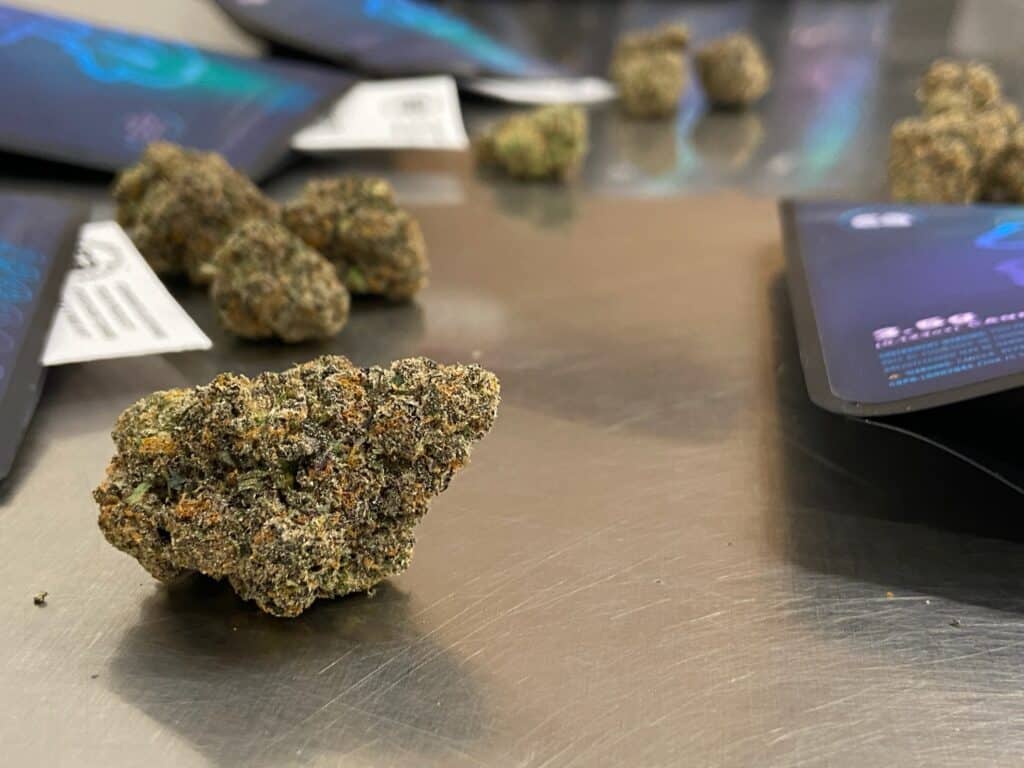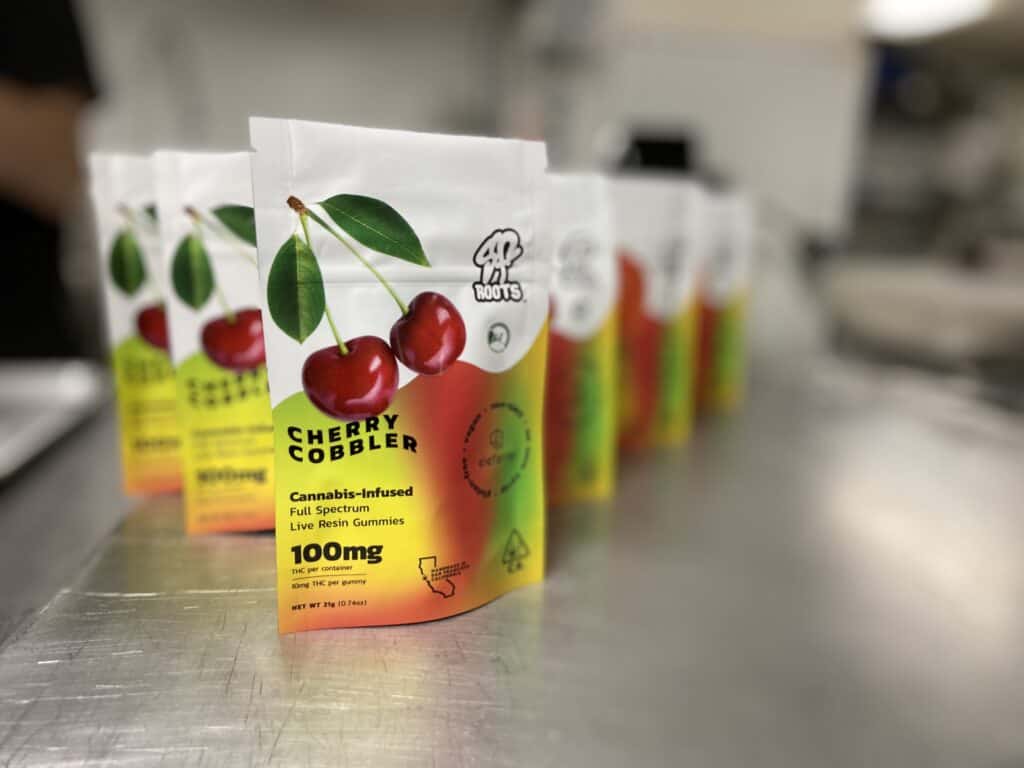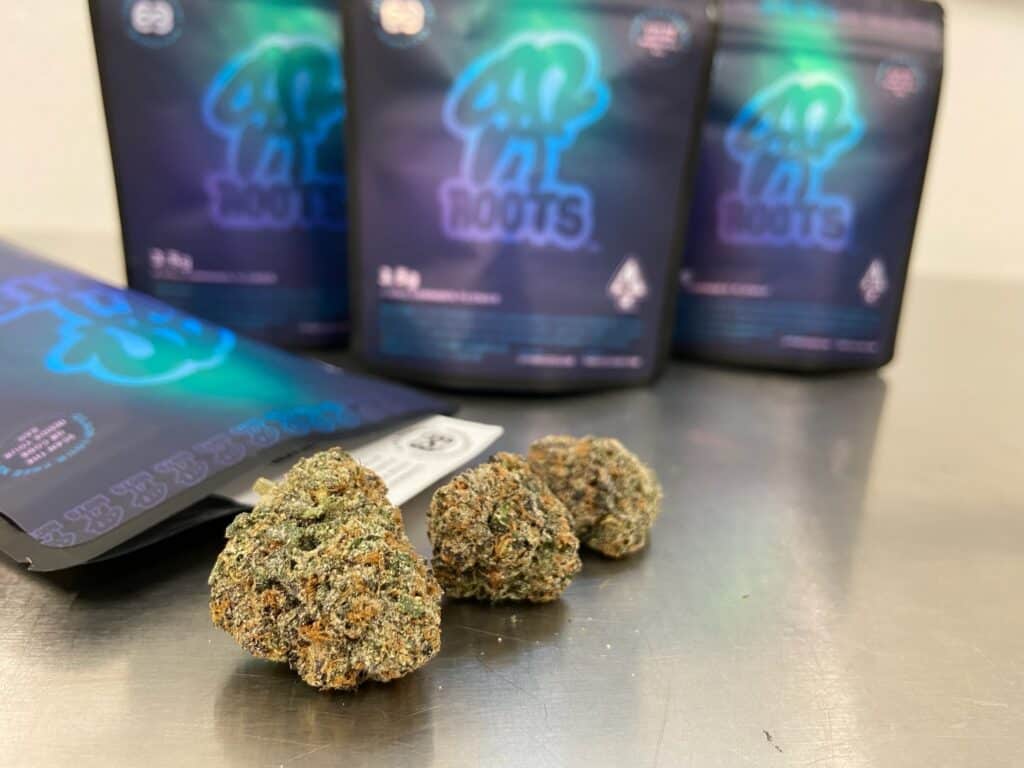For Morris Kelly of SF Roots, nothing is more quintessentially San Francisco than cannabis. As someone who came up in the Proposition 215 days, Kelly has seen cannabis build community throughout the city. “The cannabis industry as we know it was built around the compassionate care movement in San Francisco during the 1980s AIDS epidemic,” he says. “That’s the cannabis world I was birthed into.” Now, grappling with the aftermath of the War on Drugs amidst the ravages of gentrification in the Bay, Kelly is using his equity cannabis company to remind people what San Francisco is all about.
“I grew up in San Francisco as a part of the traditional cannabis scene,” says Kelly. But while the legacy market gave him his start, he began transitioning into the legal market as soon as he was able. “Once I turned eighteen I was able to open up a delivery service in the Prop 215 movement,” he says. This opportunity led to others, and before long, he was working in cultivation. But as much as Kelly appreciated the learning opportunity, he knew he could only work for other people for so long before he’d want to go into business for himself. He kept his eye on the prize as legalization drew closer, though he was skeptical that the legal industry would make room for low-income legacy operators. “I knew I wouldn’t be able to afford any of the licensing, so I really just focused on building my brand.” In spite of getting caught up in the courts following a raid on one of the farms where he was cultivating, he never got distracted from the goal of building the brand. Weekly trade shows gave Kelly a chance to get his name and product out there, and when the recreational market opened up, so did a surprising opportunity to turn his legal troubles into a leg up into the industry.



“After the city announced they’d be doing their social equity program, I could see I was a prime candidate,” he says. “I had caught a case right before the announcement, so I was fighting the case while going through the application process.” When he was accepted into the program, the long game he had been playing finally paid off. “When legalization finally came I had enough support from consumers and the community that distributors wanted to pick up the brand,” he says.
With the help of the social equity program, Kelly was able to land a manufacturing facility in San Francisco, where he has been holding it down ever since. For SF Roots, taking pride in being Bay Area OGs means not holding back with quality flower. “The bay is where everything is cultivated and curated—we want to bring San Francisco flavor across the state.” They built their loyal customer base on premium strains like Ice Cream Cake, Al Ajo OG, Mother’s Milk, and Marshmallow OG. Their heavy-hitting infused pre-rolls are crowd favorites, and they are working on a line of tinctures and vape cartridges. And customers know that purchasing the quality goods on offer at SF Roots also supports a larger mission.
For Kelly, the social equity program is much more than just a lucky break. From an ethical perspective, he doesn’t see that the industry has another choice. “They have to level the playing field,” he says. “It’s like you’re playing a game of Monopoly and everyone else has gone around the board two or three times—everything’s been bought up, and when you land on hotels you have to pay all this money.” The metaphor hits particularly hard considering the real estate nightmare in which many lower-income Bay Area residents have been living. “Gentrification is definitely real here,” Kelly says. “A lot of people get displaced, and once they leave the city it’s extremely hard to get back in.” For those like Kelly who have managed to stay in the city against the odds, it’s a daily struggle just to get by. “They’re not leaving much room for us, so we kind of just have to force our way in.” Opportunities like the social equity program are make or break for many of the communities who have historically been pillars of San Francisco’s identity as a city.

Connecting with other social equity candidates has allowed him to build the kind of business community that reflects both his values and those of the city he grew up in. “It’s about all of us coming together in the equity community,” he says. “We feel it’s vitally important to what San Francisco was— a city whose culture came from quirky small business owners and mom and pop stores—and a lot of that is being lost.” Together, Kelly and other equity partners such as Blunts and Moore and Lady Gemini have formed a collective of business owners that protect each other’s interests under the growing shadow of corporate cannabis. “It gives us a voice and representation as a collective,” he explains. “Traditionally we get left out of these rooms and conversations where the decisions are being made, so it’s a way to rally support for each other.”
As an example, Kelly tells the story of a miscommunication with a buyer that led to him getting blacklisted. The Equity Trade Network stepped in to mediate the situation and help Kelly clear his name. He recalls another time when an unscrupulous competitor arranged to have a slanderous article written about his company, completely blindsiding him. “If I had been by myself I wouldn’t have known what to do,” he says. “I really never deal with the press in that way.” The Equity Trade Network sent out a response letter, and the article was quickly dropped.
But Kelly’s passion for community support is as much informed by what he gives as what he gets. As a founder of a mentorship program for small minority-owned businesses to connect to industry veterans, Kelly has seen the power of investing in human potential. “Last year being a part of the program I was able to see four other small businesses come to life: Neighborhood Essentials, Dose of Saucy, Queen Mary, and Good Smoke,” he says proudly. “Programs like these are important to truly bridge the gap and provide resources to up and coming entrepreneurs in the space.”
These experiences have exposed to Kelly the fallacy that success in business is a zero-sum game. “Something we really took from the equity program is that a rising tide lifts all boats,” he says. But he doesn’t see collective empowerment as limited to social equity; Kelly is determined to apply his ethos to the industry as a whole. “We can’t look at each other as competition when we’re so much stronger working together,” he says.
Kelly extends this approach to the consumers. As the cannabis community expands into the digital sphere, he uses groups like the Cannabis Culture Crypto Club as a way to directly connect to consumers. Futuristic though the metaverse may seem, Kelly sees it as a way of harkening back to the old school cannabis clubs. “Cultivating a connection with our consumers brings it back to the 215 days before everything became so disconnected,” he says, pointing out how effective digital spaces can be for getting consumer input and circumventing the domination of multi-state operators.
“Everyone’s just trying to hold on together,” he says. “It’s the only way to survive.”






1 thought on “Keeping it OG: Morris Kelly of SF Roots stays true to his legacy origins”
Pingback: Live from MJ Unpacked: Our take on the first evening - MJ Brand Insights